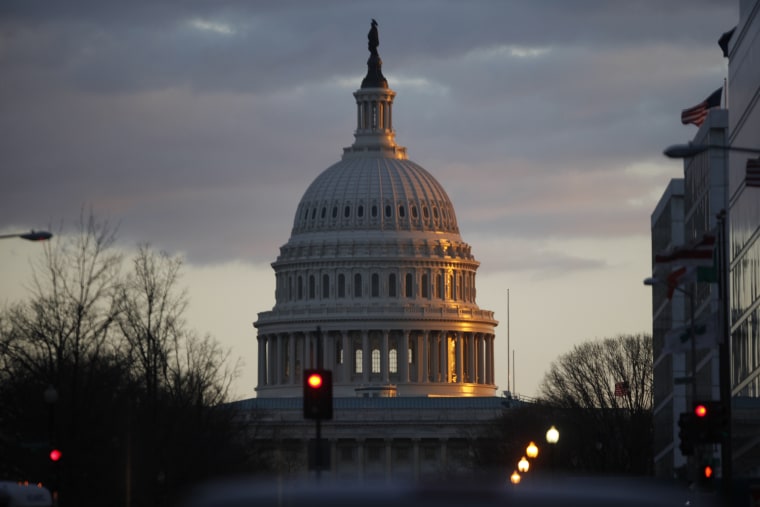As the new Congress gets underway alongside a new president, progressive activists are looking to congressional Democrats to wage a fierce partisan war against the Trump White House. Senate Democrats, evidently, don't quite see it that way.Four times over the last five days, top nominees for Donald Trump's cabinet and administration have come up for a floor vote, and four times, the nominee was confirmed with bipartisan support. To the consternation of their party's base, many Senate Dems appear eager to seem reasonable and cooperative, picking their fights carefully, and endorsing the least offensive of the new president's nominees.It makes Republicans' whining about Democratic obstructionism that much more difficult to understand.Sen. Tom Cotton (R-Ark.) complained the other day about Dems briefly blocking Mike Pompeo's CIA nomination "for no good reason," despite the far-right Arkansan's indefensible obstructionist tactics during the Obama administration. Sen. Orrin Hatch (R-Utah), who helped block a qualified Supreme Court nominee he personally recommended, added this week, "I worry about what my colleagues on the other side are doing to the Senate." The Utah Republican, apparently having forgotten 2009 through 2016, added that he's never seen partisan rancor on nominations comparable to the last few weeks.They're not the only outraged Republicans. The Weekly Standard reported this week:
Republican leadership is rethinking its relationship with Democratic minority leader Chuck Schumer after Schumer betrayed a promise to allow a vote last Friday on President Donald Trump's pick for CIA director, according to a top Republican lawmaker who spoke to The Weekly Standard. [...]Senate majority whip John Cornyn told TWS Monday that the incident is causing Republicans to reevaluate relations with Schumer.... The incident does not help trust between Senate Republicans and Democrats, he added.
All of this bitterness unfolded because the Senate voted to confirm Pompeo on Monday instead of Friday. That's it. After eight years of Republican obstructionism that was more severe than anything that exists in the American tradition, GOP senators whined incessantly about delaying a confirmation vote until after the weekend -- when Pompeo was confirmed easily with quite a few Democratic votes.For his part, Senate Majority Leader Mitch McConnell (R-Ky.) said this week that this should be an era of bipartisan cooperation. "The first thing we have to do is move beyond this 'us and them' mentality that has so often characterized the last eight years," he somehow argued with a straight face.In case anyone is as forgetful as McConnell, the Kentucky Republican took obstructionism to an art form when President Obama was in office, blocking literally everything he could, refusing to compromise, rejecting all outreach, making Obama's defeat in 2012 his top legislative priority, and counting on voters (and the media) to blame Democrats for the GOP's unprecedented maximalist tactics.It worked surprisingly well, creating a model others could follow -- if they choose to.Given the circumstances, it seems the obvious Democratic response is simple: They should promise to be every bit as constructive and cooperative as McConnell was when there was a member of the opposing party in the White House.
